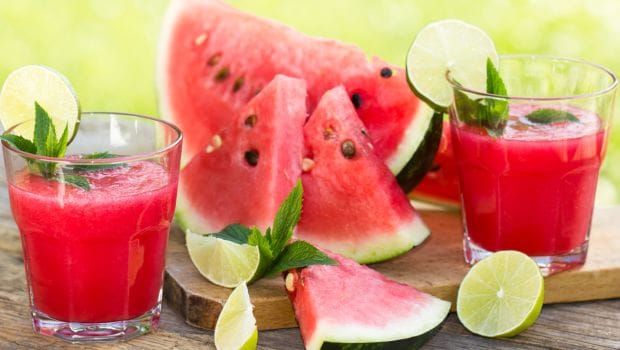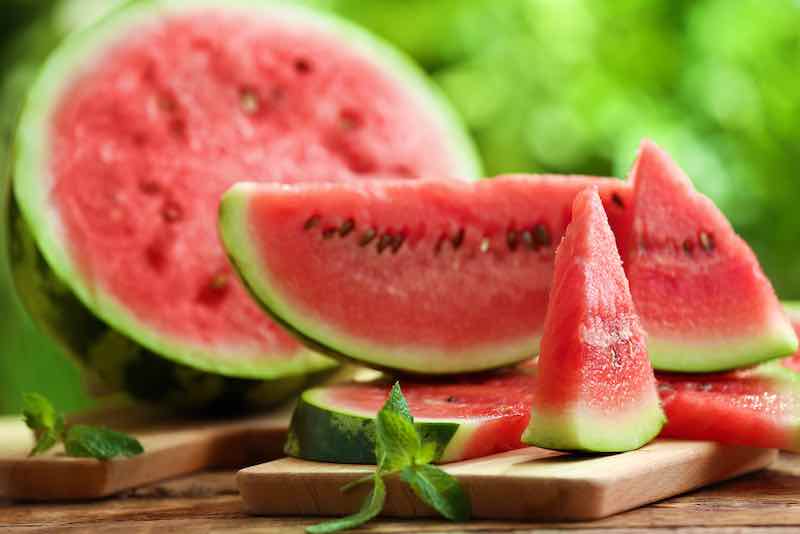Watermelon, the quintessential summer fruit, isn’t just a refreshing snack on a hot day. This juicy treat packs a powerful punch of nutrients that can have remarkable benefits for your liver. Let’s delve into the science and health benefits of watermelon to understand how it supports liver function.
The Nutritional Value of Watermelon
Watermelon is more than just water and sugar. It’s loaded with vitamins, minerals, and antioxidants. One of the key nutrients in watermelon is lycopene, a powerful antioxidant known for its health benefits. Watermelon also contains vitamin C, vitamin A, and a variety of B vitamins. Moreover, it is rich in potassium and magnesium, which are essential for overall health.
Lycopene: The Liver’s Best Friend
Lycopene is the star of the show when it comes to watermelon’s liver benefits. This antioxidant helps combat oxidative stress, a condition where there’s an imbalance between free radicals and antioxidants in your body. Oxidative stress is linked to liver damage and various liver diseases. By neutralizing these free radicals, lycopene helps protect the liver from damage and may even improve its function.
Vitamins and Minerals

Vitamins C and A are crucial for maintaining a healthy liver. Vitamin C is known for its immune-boosting properties and its role in collagen production, which is essential for repairing liver tissues. Vitamin A, on the other hand, plays a role in reducing liver inflammation and fibrosis, a condition where the liver develops excessive scar tissue. Potassium and magnesium also support liver function by maintaining electrolyte balance and aiding in cellular processes.
Hydration and Detoxification
Staying hydrated is vital for liver health, and watermelon, with its high water content, is an excellent way to stay hydrated. Proper hydration helps the liver flush out toxins more efficiently. When your body is well-hydrated, it can better manage the load of toxins that the liver processes, reducing the risk of liver overload and subsequent damage.
Water Content
Watermelon is about 90% water, making it one of the most hydrating fruits available. This high water content helps keep the liver hydrated, ensuring it can perform its detoxifying functions effectively. A hydrated liver is better equipped to filter out toxins and waste products from the bloodstream, promoting overall health and well-being.
Natural Detoxification
The liver is the body’s primary detoxifying organ. Watermelon supports this process through its hydrating properties and its ability to provide essential nutrients that aid in detoxification. For instance, the amino acid citrulline, found in watermelon, helps the liver and kidneys remove ammonia, a toxin that can be harmful if it builds up in the blood.
Anti-Inflammatory Properties
Chronic inflammation can lead to liver damage and diseases such as hepatitis and cirrhosis. Watermelon contains compounds that have anti-inflammatory effects, which can help protect the liver.
Role of Cucurbitacin E
Cucurbitacin E, a compound found in watermelon, has shown promising anti-inflammatory effects. This compound helps reduce inflammation by inhibiting the activity of enzymes that promote inflammatory processes in the body. By lowering inflammation, cucurbitacin E helps protect the liver from chronic inflammatory damage.
Reducing Liver Enzymes
Elevated liver enzymes in the blood can indicate liver damage or inflammation. Regular consumption of watermelon may help reduce these enzyme levels, indicating a reduction in liver inflammation. This effect is partly due to the anti-inflammatory properties of lycopene and other antioxidants in watermelon.
Supporting Liver Health with Antioxidants
Antioxidants play a crucial role in protecting the liver from damage caused by free radicals. Watermelon is rich in antioxidants that support liver health.
The Antioxidant Neutralizer
In addition to lycopene, watermelon contains other antioxidants such as beta-carotene, lutein, and zeaxanthin. These compounds help neutralize free radicals, protecting liver cells from oxidative stress and damage. By reducing oxidative stress, these antioxidants help maintain the liver’s ability to function properly and prevent long-term damage.
Boosting Glutathione Production
Watermelon may also help boost the production of glutathione, a potent antioxidant produced by the liver. Glutathione plays a key role in detoxifying the liver and protecting it from damage. Foods that support glutathione production can significantly enhance liver health, and watermelon is one of those beneficial foods.
Weight Management and Liver Health
Maintaining a healthy weight is crucial for liver health. Excess body fat, particularly around the abdomen, can lead to non-alcoholic fatty liver disease (NAFLD). Watermelon can be a helpful part of a weight management plan.
Low-Calorie, High-Nutrient
Watermelon is low in calories but high in essential nutrients, making it an excellent choice for those looking to manage their weight. A cup of watermelon contains about 46 calories, making it a satisfying, low-calorie snack. Its natural sweetness can also satisfy sugar cravings without the added calories of sugary treats.
Promoting Satiety
The high water content of watermelon contributes to a feeling of fullness, which can help prevent overeating. When you feel full, you’re less likely to reach for unhealthy snacks or overeat, supporting your weight management goals. This can be particularly beneficial for those with or at risk for NAFLD, as weight loss is a key factor in managing this condition.
Practical Tips for Including Watermelon in Your Diet

Incorporating watermelon into your diet is easy and can be done in various delicious ways.
1. Fresh and Simple
The simplest way to enjoy watermelon is to eat it fresh. Slice it up and enjoy it as a snack, or add it to fruit salads for a refreshing treat. You can also blend watermelon into smoothies for a hydrating and nutritious beverage.
2. Creative Recipes
Get creative with watermelon by using it in unique recipes. Try making a watermelon salad with feta cheese, mint, and a drizzle of balsamic glaze. You can also grill watermelon slices for a unique and tasty twist. Watermelon salsa, made with diced watermelon, onions, cilantro, and lime juice, is a refreshing accompaniment to grilled meats or fish.
3. Hydrating Beverages
Watermelon can be used to make hydrating beverages that support liver health. Blend watermelon with a bit of lime juice and mint for a refreshing watermelon cooler. You can also make watermelon-infused water by adding chunks of watermelon to a pitcher of water and letting it steep in the refrigerator.
Potential Considerations
While watermelon offers numerous benefits, it’s essential to consider any potential drawbacks.
1. Sugar Content
Watermelon contains natural sugars, which can be a concern for those monitoring their sugar intake. However, the sugar content in watermelon is relatively low compared to other fruits, and its high water content helps dilute the sugar concentration. Moderation is key, especially for individuals with diabetes or those following a low-sugar diet.
2. Portion Control
Like any food, watermelon should be consumed in moderation. Eating large quantities in one sitting can lead to discomfort or digestive issues due to its high water and fiber content. Stick to reasonable portions to enjoy the benefits without any adverse effects.
Conclusion
Is watermelon good for your liver? Watermelon is more than just a tasty summer fruit. Its rich array of nutrients, antioxidants, and hydrating properties make it an excellent choice for supporting liver health. By incorporating watermelon into your diet, you can take a delicious step towards maintaining a healthy liver and overall well-being. Whether you enjoy it fresh, in salads, or as part of a refreshing beverage, watermelon is a versatile and beneficial addition to your dietary routine. Embrace the goodness of this vibrant fruit and let it help keep your liver in top shape.
